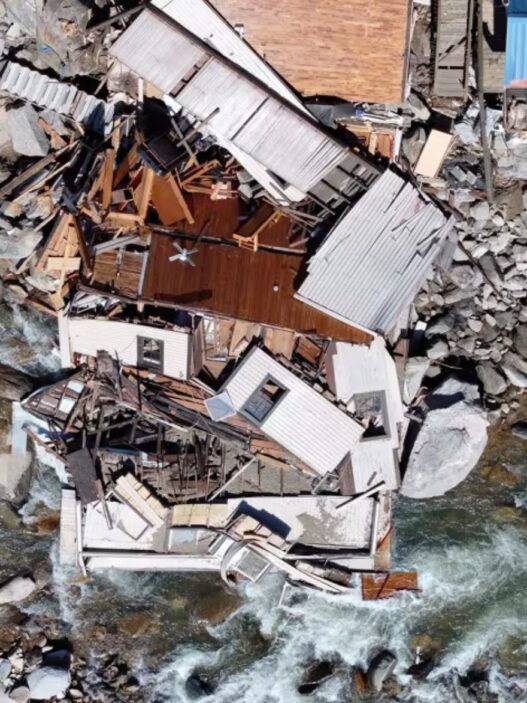Hurricane Milton recently tore through parts of Florida, leaving behind widespread destruction, uprooted lives, and a mental health crisis that is affecting thousands.
The storm not only caused physical damage but also left many residents grappling with emotional and psychological distress.
The aftermath has left many Floridians in need of support as they try to rebuild their lives, homes, and communities.
The Emotional Toll of Hurricane Milton
Living through a hurricane like Milton can be terrifying. The strong winds, flooding, and chaos take a toll on everyone, especially children, elderly residents, and those already struggling with anxiety.
For many, the worst part isn’t even during the storm but what happens afterward. Families have lost their homes, pets, and even loved ones.
These losses can create long-lasting effects on mental health, including anxiety, depression, and PTSD.
Children, in particular, are struggling with the emotional impact of the hurricane.
Many have been displaced from their homes and schools, and the change in routine can lead to increased anxiety.
Parents, too, face the challenge of trying to stay strong for their children while managing their own stress.
The uncertainty about the future—whether it’s about finding a new home or getting basic services restored—adds to the emotional burden.
Healthcare Workers Stretched Thin
Healthcare providers, including mental health professionals, have been working around the clock to meet the needs of those affected.
However, the demand is overwhelming, and the resources available are limited.
Many healthcare facilities were also damaged in the storm, making it even more difficult to provide timely care.
Mental health workers are doing their best to offer counseling and emotional support, but the needs far exceed the available services.
The state government and various organizations have stepped in to provide hotlines and emergency support for those in crisis.
However, with so many people affected, these resources are being stretched to their limits.
Community centers are also trying to help by offering group counseling sessions and safe spaces where residents can share their experiences and find comfort in knowing they are not alone.
The Importance of Long-Term Mental Health Support
Experts agree that the mental health effects of natural disasters can be long-lasting.
Even after the physical rebuilding has started, emotional wounds can linger.
The Centers for Disease Control and Prevention (CDC) suggests that mental health resources should be a key part of any recovery plan following a natural disaster.
This includes offering counseling and therapy for survivors, as well as providing resources for those who might need support in the months and even years to come.
Local organizations in Florida are calling for more funding and support to provide mental health services to affected communities.
They argue that without proper mental health care, the emotional scars left by Hurricane Milton will remain long after the physical damage has been repaired.
The aftermath of Hurricane Milton in Florida is not just about rebuilding homes and infrastructure; it’s also about healing emotionally.
The storm has left thousands of residents struggling with anxiety, depression, and uncertainty about the future.
The healthcare system is stretched thin, and there is an urgent need for more resources to support the mental well-being of those affected.
As the community works to recover, it’s important to remember that emotional recovery is just as crucial as physical rebuilding.
By providing ongoing support and resources, we can help those affected by Hurricane Milton rebuild not just their homes but also their hope for the future.























